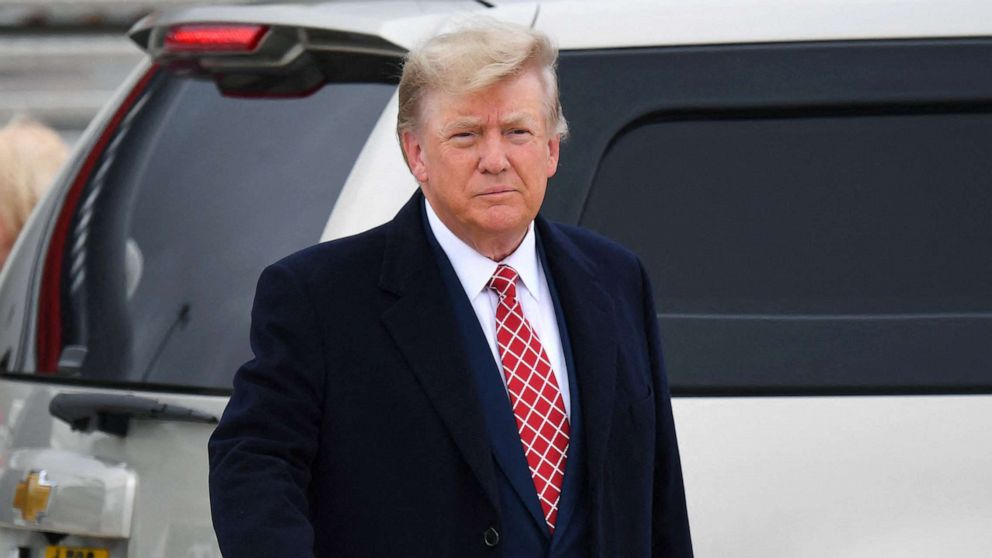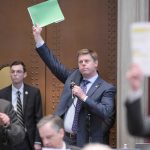Donald Trump’s most significant assault on American democracy and the rule of law lies in his adept exploitation of foundational institutions to systematically undermine both. This serves as a crucial component of his ongoing efforts to maintain personal power, ultimately aiming to establish oligarchic dominance and facilitate financial exploitation by the ultra-wealthy.
This analysis aims to move beyond Trump’s procedural controversies or diversions and instead connect his tangible substantive offenses, deceptive policies, and fraudulent behaviors to the broader and perpetual appropriation of accumulated capital by the GOP from the United States Commonwealth.
Contrary to Trump’s repetitive narrative of being persecuted or targeted by the Justice Department (DOJ), state prosecutors, and the courts as part of a supposed “deep state” conspiracy to thwart his potential return to the presidency in 2024, these civil and criminal agencies have shown considerable leniency towards Trump’s ongoing transgressions within and outside various courtrooms across the country.

Until a jury criminally convicts Trump, his narrative of persecution will persist among the GOP majority, overshadowing the 91 felony counts against him. Recent incidents, such as the closing arguments in Trump’s $370 million civil fraud trial and his second sex abuse defamation trial, exemplify his disruptive behavior in courtrooms, reflecting a pattern of disdain for legal proceedings.
Despite judicial warnings, Trump continued to disrupt the trial, displaying a brazen disregard for decorum. In the sex abuse defamation trial, he shouted phrases like “witch hunt” and “con job,” reinforcing his narrative of victimization. In the civil fraud trial, he was permitted a lengthy courtroom rant, deviating from legal matters to make political statements.
In the face of procedural misconduct, judges like Arthur Engoron allowed Trump’s disruptions, anticipating an impending appeal and a barrage of delay-oriented motions after their final decisions on dismantling Trump’s business empire. This leniency, however, contributes to diverting attention from the substantive lawlessness and fraudulent activities in Trump’s clashes with the justice system.
In the fraudulent business trial brought by the New York Attorney General, Trump’s defense revolves around claiming no harm caused by his alleged illegal financial activities. This mirrors Trump’s broader modus operandi of exploiting lending transactions for personal gain. The GOP’s infamous $1.9 trillion tax break for the wealthy, signed by Trump, exemplifies the larger trend of facilitating financial looting on a grand scale.
As detailed in “Indicting the 45th President,” Trump, as POTUS, established an administrative apparatus prioritizing self-interest, profiteering, and corruption over public welfare. His networks for raising and handling large sums of money also played a role in the deadly insurrection fueled by a self-serving ethos.
By the end of 2023, Trump had spent over $57 million of others’ money on legal fees, reflecting his relentless pursuit of financial gain. His business history, marked by overseas financial deals and questionable practices, reveals ties to China, Britain, and Ireland, where he maintained bank accounts. The release of Trump’s taxes uncovered offshore accounts, contradicting his earlier stance on offshore banking during the 2016 campaign.
Trump’s political appointments during his presidency included individuals with no expertise but strong ties to offshore banking, tax avoidance, and financial exploitation. The $1.9 trillion tax cut, the sole significant accomplishment of Trump’s presidency, disproportionately benefited the super-wealthy, exacerbating economic disparities.
Economic projections indicate that the 2017 Tax Cut and Jobs Act will increase the government deficit, echoing past failures of trickle-down benefits. The neoliberal taxing policies employed globally have consistently led to dismal outcomes in various countries, including Argentina, Brazil, and Russia.
In summary, Trump’s assault on American democracy and the rule of law goes beyond procedural controversies, revealing a pattern of substantive crimes and financial exploitation. His legacy includes significant deficits and a tax cut that primarily benefits the wealthy, underscoring the detrimental impact of his policies on the nation’s economic landscape.


